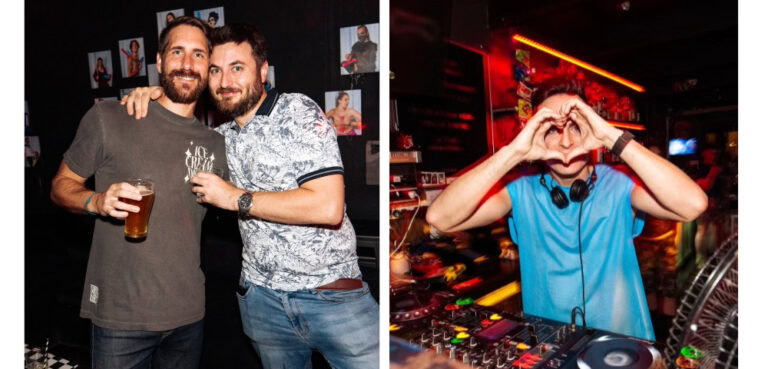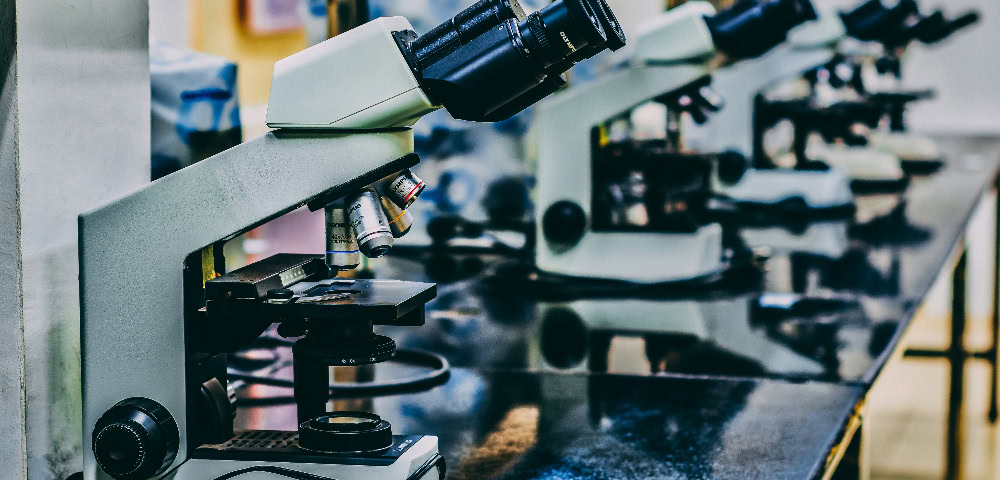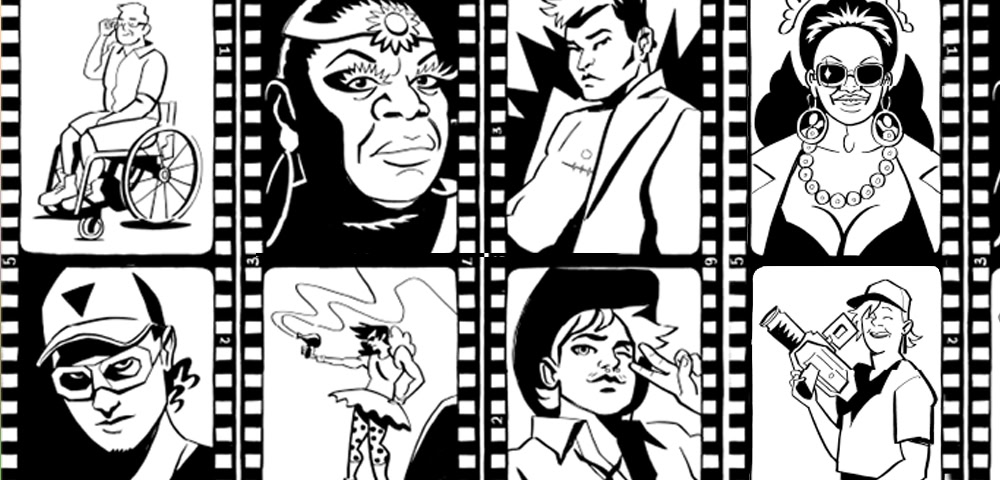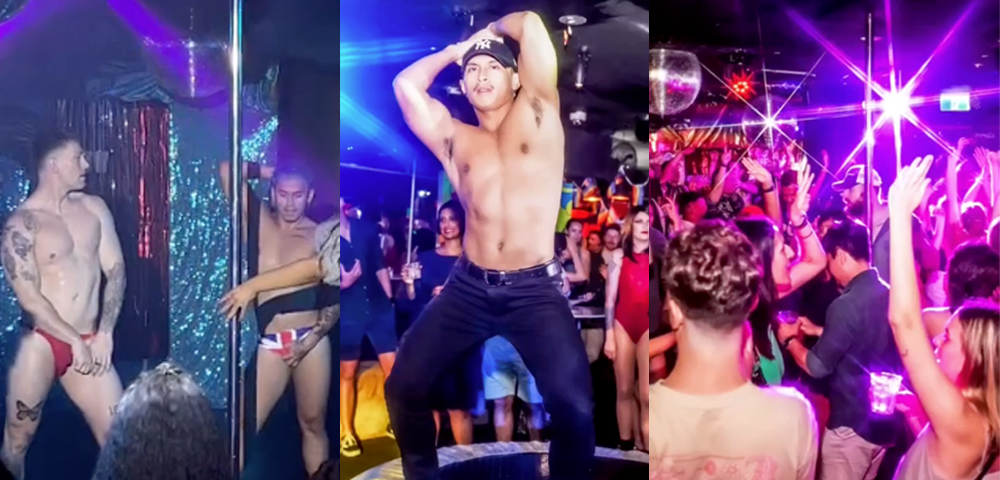
Hormone war: the fight for young trans people to access treatment

For young trans people in Australia, the road to medical transition can be long, expensive, and frightening. Trans kids still have to go to court for permission to be their true selves. But there are young advocates leading the way to change all that. Jess Jones reports.
***
Georgie Stone was seven years old when she first thought about suicide.
“I realised that either I was going to be a girl or I was going to kill myself,” she says.
“That was the moment of realisation that I needed people to understand, that this is who I am. I’m not just a boy who likes girl things.”
Stone has known her whole life that she’s a girl, and she was ten when she started puberty.
At that time, young people wanting to take puberty blockers, known as stage one, had to make a submission to the Family Court for permission.
“My testosterone levels were really high, and I was stressed out at that point, because I didn’t think that we’d be able to get to court in time,” she says.
“I was getting quite scared.
“There was a lot of comparing myself to other girls at school. They were talking about periods and breasts and stuff like that, and I was stressed about puberty and masculinising.”
Stage one treatment for trans children no longer requires the family to go to court, thanks to lobbying by Stone herself.
Stage two treatment is hormone replacement therapy to bring on puberty for a young trans person’s correct sex—oestrogen to start female puberty, in Stone’s case. And unlike stage one, it still requires permission from the court.
“I was very self-conscious about my body,” says Stone. “I thought I looked really masculine and I really wanted to go into female puberty so I could develop alongside my peers.”
Stone was 15 when she went to court for permission to start hormone therapy.
“Going to court was really stressful,” she says. “It’s a long process, getting your lawyers and all the documents together, getting letters from your paediatrician and your psychiatrist.
“It’s a really drawn-out experience, and just having to go through that, for trans kids, is incredibly stressful. Applying for stage two was probably one of the darkest periods of my life.
“I became very paranoid about my voice breaking and that I didn’t look feminine. Even though I probably did look feminine, I was over-examining my body, scrutinising every inch of myself. And that came directly from having to go to court.
“It’s horrible, and it’s worse for other kids who don’t have parents who are supportive or whose families aren’t able to get pro bono lawyers. It costs families thousands and thousands of dollars. To have the mental health issues that come out of the process, and the pressure it puts on the whole family as well, it’s horrible. It’s awful.”
The big day in court finally came, and Stone watched as one of the most important decisions in her life was made.
“Sitting in the courtroom with the judge who was going to make a massive decision about my body, I felt completely powerless,” she says.
“It’s bizarre, a decision that should be mine about my body, was handed to a complete stranger. It’s completely and utterly unfair.”
Fortunately, the court agreed to grant Stone access to stage two hormones.
“It was like all the stress and this massive burden had just been lifted from my shoulders,” she remembers.
“I felt like finally I didn’t have to go back to court and I could live as my authentic self without anyone else having to decide for me what’s best for me. I was so relieved that I didn’t have to plead anymore with anybody to just be who I am, I could just do it and move on.”
Stone’s court appearance was in the morning, and she started hormone treatment that afternoon.
“We went up to the local pharmacy together,” says Stone’s mother.
“I put in the script, and we got the packet and took it to the cash register. It cost us $8.90.
“We both started laughing and laughing, because it had been such a horrific process, and such an awful ordeal, and so discriminatory, all for a packet of standard oestrogen tablets that cost $8.90.”
Stone is involved in advocacy for young trans people, and has been pushing for the government to scrap the court requirement for hormones. In March she delivered a petition to federal parliament with over 15,000 signatures.
Mill O’Sullivan from LGBTI youth network Minus18 is also part of the fight to have the court requirement removed for trans teens to access hormones.
They hold particular concerns for non-binary and gender-diverse young people whose transitions may not be as straightforward.
“In the current model you have to have multidisciplinary teams confirm that you experience gender dysphoria and have gender identity disorder, and identify very strongly within the binary model of gender,” they say.
“If you don’t do that, it’s incredibly difficult to access hormones, stage one or stage two. So it’s really difficult for non-binary folk who want to go on [for example] testosterone because these systems are still incredibly binary.
“Myself and a number of friends who are non-binary have all but given up on trying to access any kind of hormone replacement therapy or subsidised medical treatment. It’s impossible, it’s really inflexible.”
Before young people even get to court, O’Sullivan says that accessing hormones can be difficult due to other barriers as well. A shortage of doctors who are familiar with trans issues means finding someone to talk to about medical transition is often a challenge.
“The distrust for young trans folk going to the doctor is monumental,” they say.
“There’s a huge proportion of young trans people who just don’t go to the doctor whatsoever. That’s because we have whole facilities that don’t have inclusivity and diversity training.
“So for a young person who hasn’t had their name legally changed, reception staff will call them by their dead name and misgender them, the doctor won’t really know what trans things are, and the whole process just becomes incredibly tiring and humiliating.”
O’Sullivan says that young people who can’t access hormones through regulated channels may turn to black-market hormones.
“Accessing hormones online, without knowing proper doses or how to administer them, it can be really dangerous and affect people’s health,” they say.
“We see it all the time, particularly young transfeminine people.
“And it’s quite often less supported to be a young trans woman than a young trans man. So you see a lot of medical practices and schools and families not supporting that person.”
O’Sullivan agrees that the court process is traumatic for young trans people who have to go through it.
“A young person who really needs this hormone replacement therapy desperately—I see it as a life or death situation sometimes—having to go through the court system where someone gets to tell you whether you are or are not allowed to be your identity is pretty full-on,” they say.
“And there’s no specific training for judges or anyone in the judicial system. You can be in front of any judge who has no idea about trans identities or experiences. It’s really daunting for parents and children, your fate is in the hands of someone you don’t know.”
O’Sullivan sees the court requirement for hormones as not just a human rights issue but a waste of resources.
“You have to go through potentially an eighteen-month process,” they explain.
“The hearing process itself if you can’t find a pro bono lawyer is up to $30,000 for representation. It wastes so much money, and I just think it’s an absolute waste of time.”
Young people who need pro bono legal assistance for the court process to access stage two hormones can contact Justice Connect (justiceconnect.org.au) or the Sydney Inner City Legal Service (iclc.org.au) for advice.









